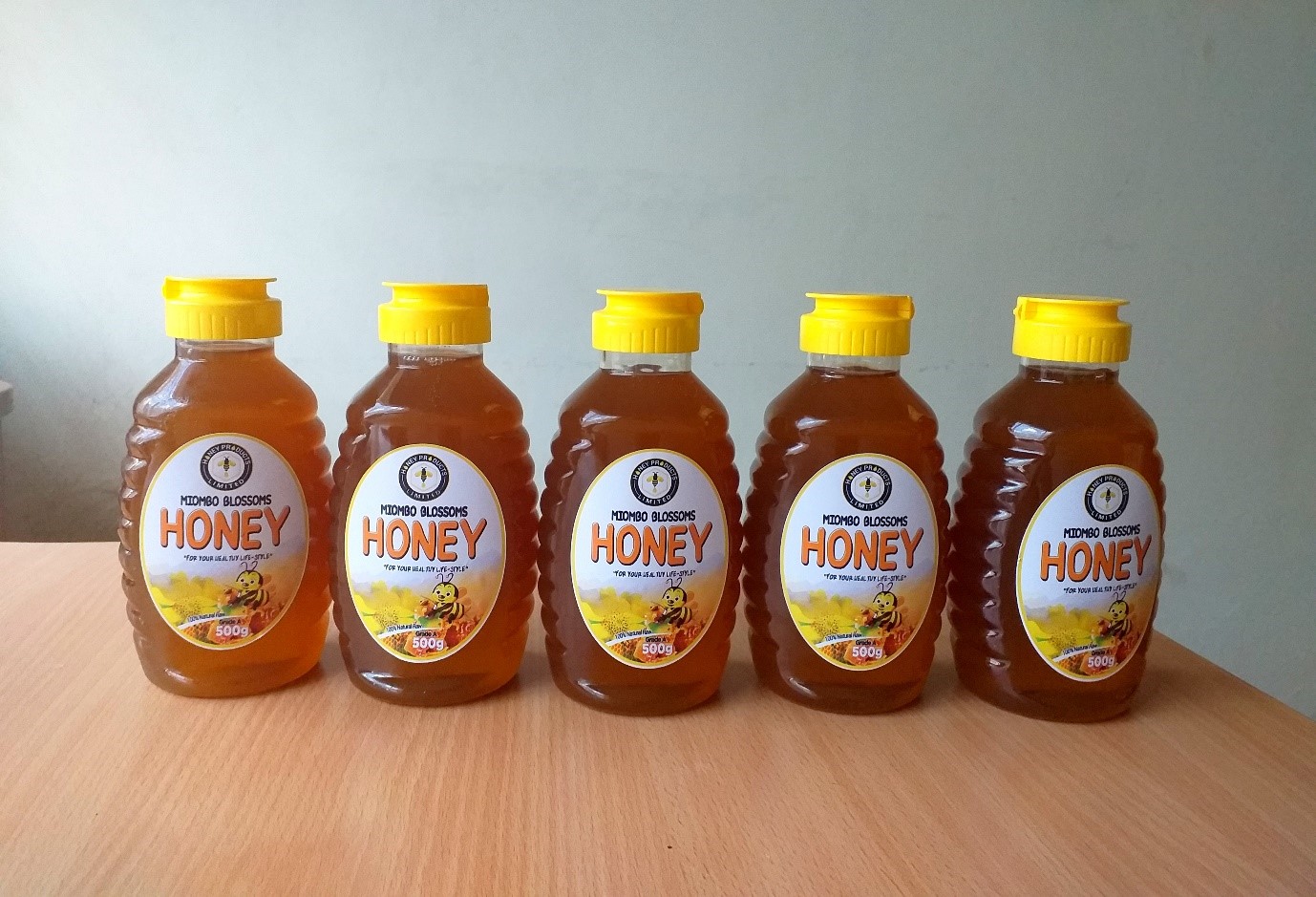Honey Products Limited (Industries)

The enterprise trains young people to own and operate business outlets located in specific geographical locations via a franchise model. These outlet managers provide beekeeping equipment and training to local smallholder farmers. The raw honey is collected, tested for quality and purchased by the outlets.
The honey is then transported to the factory for processing, where it is labelled with processing and expiration dates and finally distributed to community stores’ shelves. By creating a value chain around honey, Honey Industries offers young adults a source of income and improves smallholder farmers’ resilience and access to markets.
- Offering entrepreneurship and business management skill training to 250 unemployed young adults.
- Setting up three organised business hubs.
- Increasing access to financial services such as loans and savings for young franchisees and smallholder beekeepers.
- Providing natural resource management training to smallholder farmers to promote biodiversity conservation and maintain and propagate bee stocks.
- Reducing exploitation and degradation of local forests by providing an alternative livelihood strategy for communities.
- Improving access to profitable markets for 2,500 smallholder beekeepers.
- Diversifying sources of income for smallholder farmers who often cope with the challenge of food insecurity as yields of rainfed agriculture are typically low in the region.
- Increasing job opportunities for young adults.
Partners
Rural Livelihoods Economic Enhancement Programme (RLEEP), an 8-year programme that is co-financed by IFAD, OPEC Fund for International Development (OFID) and the Government of Malawi, has been supporting HPI.
The Business Linkages Matching Fund is a project under Ministry of Industry and Trade and SMEDI which aims to support Malawian SMEs and it granted matching funds to HPI.
African Agri-business Academy (AAA) offers a pan-African business platform for small and medium-sized agrifood enterprises, providing HPI with access to agribusiness expertise.
